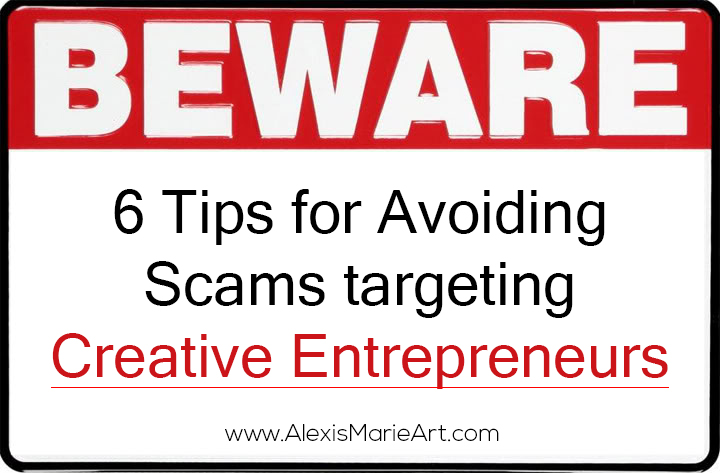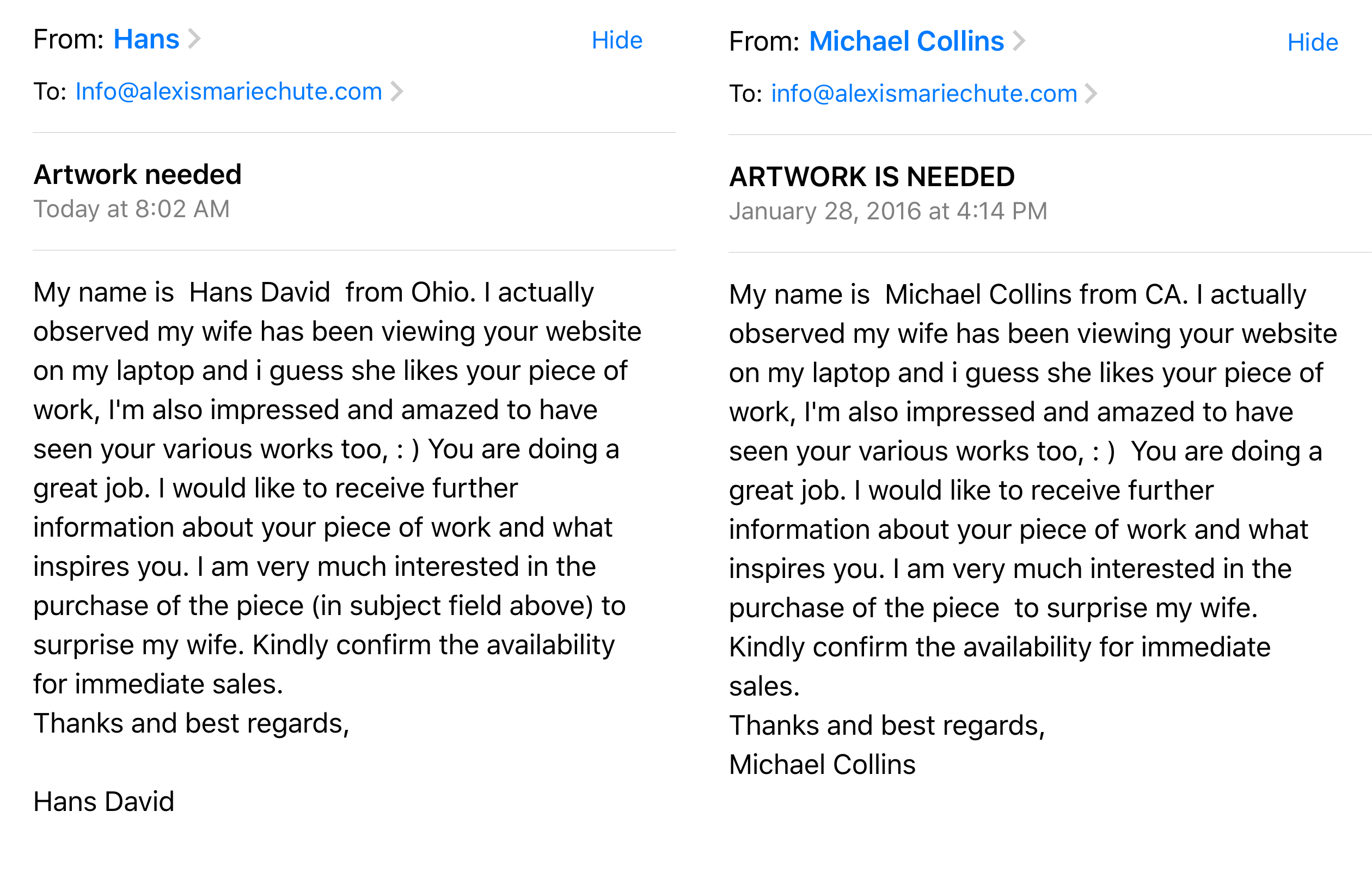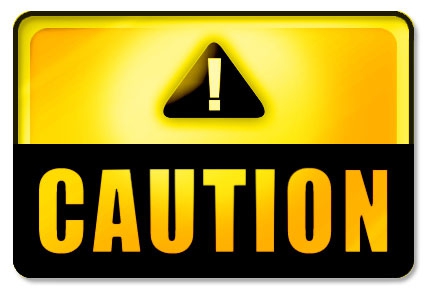Posts
Write What You Know – even in Fiction
Write what you know. This may seem like the most obvious advice in the word, but it’s not. While I’m sure many of us have a burning desire to write the next great novel of pure fictitious brilliance, there is something to be said for using the material your life has gracefully provided you. And it is immediate and at-hand. The only research required is within your own personal history and daily life.
Julia Cameron‘s suggestion of writing “morning pages,” from her book called the The Artist’s Way, is one great suggestion to mine the creative juices from our lives. In this free writing, free flow, pre-consciousness approach, we can find creative breakthrough by writing whatever comes to us. I suspect that this method frequently reveals gems from one’s own personal reality.
What if you rebut: “My life is so boring!”
I’d respond: “Is it? Is it really?”
My six-year-old daughter tells me when she is bored. Often times it is when she is not engaged by me or a teacher or a friend or her siblings; and also when she is too tired or grumpy to play by herself. When she says this, it always blows my mind. She has a pretty amazing life for a little girl – that’s what I feel from my perspective at least. I’ve stocked our home with countless garage sale books. She has neighborhood friends and they play (safely) in the street. We travel to visit our out of town family. When I look at all the places she has gone, the experiences our family has had together, the opportunities open to her, I think: “Wow, you’ve had a great life so far, my dear.” I hope most days she realizes this too.
It’s all a matter of perspective.

One of our mandates as writers is to translate our experiences into our fiction, non-fiction, poetry, young adult stories, mysteries, essays, short stories, and the list goes on. Whatever your mind can conceive of, right?
If you are a fiction writer that has never considered taking inspiration from your own life, I suggest you give it a try! Think about the people that cross your path every day; your coworkers, family and friends . Maybe some of them can become your most beloved characters – or villains. You have a collection of people around you. People you know extremely well – from their opinions to their facial expressions. Take inspiration from these folks and write that kind of detail and intimacy with humanity into your stories. The same goes for settings.
I’ve heard it said somewhere, something to the effect of: there is no true fiction. (If someone can point me to the actual quote, that would be much appreciated.) There is a grain of truth behind all stories. What better reason is there to write what we know!
Somehow, my life experiences always seep into my writing. Or perhaps I would better describe it by saying: my life provides the richness of inspiration for my writing. This is something I am extremely grateful for.
I am so inspired by the human experience that I have inevitably become an avid observer and recorder. For me, memoir and personal essays are an easy choice. However, it is nice every once and a while to break out and experiment with fiction. You could say my successful completions of NaNoWriMo (National Novel Writing Month; 50K in the month of November) and the 3 Day Novel Contest (September long weekend; 100+ pages) are just such a foray into crafting work outside my every-day life. I would also argue that I simply love a challenge.
Funny enough, I actually found it much easier to write fiction to the pace of the racing clock during these competitions than I did the one year I participated in NaNoWriMo with a memoir as my goal. I couldn’t unearth my personal stories that quickly. They require a slow-cook-approach I’ve discovered.
What I write about most often, for my profession and for pleasure, are family stories. Parenting. Motherhood. Being a working-mom. Being an artist-mom. Personal identity. These topics are close to my heart. They feel almost quintessential and spiritual to me. For now, I am telling these stories through creative non-fiction. Its a blurry category. Is it 100% truth? Well, no. Is it fiction? Nope, not really. At the same time, I feel like creative non-fiction is my perfect vehicle, for now, to write what I know.
What writing projects have captured your heart right now?
What are you working on?
How do you use your own life as inspiration for your work – no matter what genre you are writing in?
Please comment below. Let’s have a conversation : )
If you’d like to get these posts directly in your inbox, please subscribe by clicking here.
Thank you for reading!
– Alexis Marie
Artists, beware of scams!
We all need to be aware of the scams going around that take advantage of hard-working, honest creative people. Working as a professional artist for the last fifteen years has taught me something:
If it sounds too good to be true, it probably is.
I don’t mean to say this in a pessimistic way, but I do think it is prudent to be cautious when opportunity knocks on your door. Please read this article and share it with other creative entrepreneurs you know. It is important that we spread the word and protect ourselves and others. Our work, time, and talent are too valuable to be scammed.

TIPS TO AVOID SCAMS
TIP 1: Run opportunities through the below 4 criteria before signing on the dotted line
The legitimate opportunities that have come my way have been:
- Through hard work on my part
- By some initiative of my own making, either recently or traceable from a seed planted a while back
- Through someone I know or by a mutual connection (a friend of a friend or a coleague of a coleague, for example)
- Tried by someone I know and respect who vouches for it
I distinctly remember being contacted by Agora Gallery in New York who **found my work online and loved it.** I had never heard of them before, but was so excited that a New York gallery had contacted me. Unfortunately, when I asked some of my artist friends whether they had heard of the gallery, which they had, the reviews were not positive. I researched extensively online. There were may forum discussions about this and other vanity galleries. I gathered that Agora contacts A LOT of artists they find from combing the internet.
One red flag right off the bat: they charge artists $5,450 USD to show in their gallery!!
Artists: You should not have to pay a legitimate gallery to show your work.
As beautiful as the dream is to show my art in the Big Apple, I want to earn my way there, not pay for it. Plus, when you dish out the dough to get your work shown, those “in-the-know” in the art community will spot that immediately on your CV. Is it worth it? The decision is up to you.
TIP 2: Do Your Homework
If someone emails or phones you about a **big opportunity** that you **simply must participate in** – BEWARE.
I continuously receive emails telling me to buy a page in an art catalog or photography book that will be sent out to agents, galleries, reps, and so on. They go on and on about what an amazing opportunity it is. The fee for one of these is $500 for a page in a photo book, for example. They lay it all out: at $500 for a page, with the book sent to thousands of agents, your actual investment is $X per agent.
They are doing the hard sell. If you are desperate, maybe their offer sounds appealing. But again, I say BEWARE. Are these thousands of agents asking for this product? Likely not. Is there any way of knowing that these books actually get sent out and seen?
First check out the person and business these offers represent. Does this person knows someone you know? Or are you connected through a business network? Do they have a concrete location? Are you familiar with this company or the individual within the broader community you work in?
Search for reviews on the internet. Online reviews and forums can be a LIFESAVER.
TIP 3: Trust your gut
You may have been found (or targeted) because your online presence is doing its job. The scammer found you because you are promoting yourself as an artist or a writer or a sculptor. It’s great to be found, but there are far too many people/scams out there that try to take advantage of creative people.
I know that it may seem wonderful to be contacted. We all want to hear how great our work is, that we are wanted and valued. Hear it from me: YOUR WORK IS GREAT! YOU ARE VALUABLE! YOUR CONTRIBUTION IS MEANINGFUL! YOUR LIFE MATTERS! KEEP DOING WHAT YOU ARE DOING! (I mean it. I believe in creative people pursuing their passions. It is inspiring. And I know we all need to hear these encouraging words sometimes… okay, often. The best part? You don’t have to pay me to say this to you. Take the encouragement for free : )
With unsolicited **opportunities** flattery can be a cover for the scam. They will say:
- Your writing is so great, please write for our site? (For free of course)
- Your art is amazing, I’d like to buy, can I pay online? (They may pay with stolen funds, demand a refund, you may never see your work again, causing you all kinds of stress)
- Your drawings are so captivating, can we show them in our gallery? (For a huge sum of money)
If something doesn’t feel right, if your sixth sense is tingling, TRUST YOUR GUT! This is probably one of the best pieces of advice, not only for avoiding scams, but in every area of life.
TIP 4: Read carefully and with discernment
If you get an email about your work, look closely at the email address it is being sent from. Strange looking email addresses are a good clue that the sender may not be legit.
Here is an example of a suspicious email address (from the scam email below):

Also, if the email is vague and asks for prices and payment options – BEWARE.
Here is a screen shot of two scam emails I received this year. Two different senders. Basically the same wording – although not perfect grammar (another clue!). Here is exactly what to look out for:

At first, in January, I wondered if this was a real email inquiry. I even responded. I continued to get vague responses. It was fishy!!! I didn’t pursue the conversation. Then just today I received almost the exact same message. What perfect confirmation of the SCAM that it is. Watch out!
TIP 5: If the **big opportunity** asks for money, run the other direction
I am so frustrated with all the great/wonderful/fabulous opportunities that come my way – that of course cost an arm and a leg! It is incredibly disappointing that so many scams rip off creative people, many of whom are doing their absolute best to scrape a living from the pursuit of their dreams.
This seems obvious, but we all need a good reminder every now and then:
People should pay YOU for your work, not the other way around.
NOTE: There are many legitimate opportunities out there that do ask for an entry fee. Many competitions and group exhibitions are volunteer run and need the funds to put on the show or award a prize. Still, do your homework.
For example, I run InFocus Photo Exhibit and Award: www.InFocusPhoto.ca (which soon will be hosted on it’s own site, yay!) As a part of the submission process for InFocus, we charge an entry fee. I will be very transparent: my first year running InFocus we charged $10/entry of 3 images – and I still ended up paying about $600 out of my own pocket to host the exhibition, promote it, get wine for the opening reception, list the event in Exposure Photography Festival’s printed program, etc. The second year I charged a bit more ($25/3 images) and found some sponsorship and through this, broke pretty close to even.
I am using InFocus Photo as an example that modest amounts of money are reasonable – but still only when you know that the organizer or organization is reputable. Even a small amount of money is too much to lose on a scam.
TIP 6: Consider twice if they contact you
I am sure we all want to get to the place where opportunity knocks on our door, instead of us having to seek it out. Unfortunately, for the vast majority of us, that is not the case.
Consider the above example of a big gallery contacting you. In all reality, legitimate galleries are probably far too swamped with submissions from artists to spend a huge amount of time searching out new talent. It probably does happen, but not that often.
When real opportunities do knock, as I hope they will for you, if you check them out by going through the above tips, you can feel more confident in their validity.
There are always exceptions to the above. There are many wonderful people in the world along with many great opportunities. Be discerning. Good luck on all your creative adventures!
Thank you so much for reading! If you know about any scams that the public should be aware of, please share them below in the comments.
The Cottage Days of Summer
Where has the summer gone? I always feel this way as September nears. Do you as well? When the weather was just warming this season, I wrote an article called Cottage Days for the Edmonton Senior and Calgary Senior Newspapers. In the article I interviewed two energetic women about their experiences owning a cottage and hosting friends and family over the summer. I have been a guest of both women and know they are examples worthy to be followed.

Image from Cottage Days article, Edmonton Woman Magazine website.
Please click on the link here to read Cottage Days.
This summer my family spent some time in a “cottage” of our own. It was a wood-walled A-frame cabin with a sink and toilet and a place to sleep. It was cozy… and when I say that, I mean small – but that is what I loved about it. We only hung out in there at bed time as we read our books and snuggled into sleeping bags.
There is something magical about cottage days, escaping it all and reducing the needs to a humble few.
Have you ever vacationed at a cottage? What was your experience like?
Thanks for reading!
A Writer’s Reading List
There is not much in life where a person can succeed alone. Learning from others, being mentored and reading books are key activities for anyone wishing to strengthen their skills and creativity.
A Writer’s Reading List
What books are your favorites?
What literature has inspired you over the years?
What titles motivate you as a writer?
I have collected the beginnings of a reading list from what I personally have found helpful. It is made up of books I have read and ones I hope to dig into soon. A good number of the titles I discovered during my Masters of Fine Art in Creative Writing at Lesley University in Cambridge, MA.
Some of these books are helpful for the craft of writing. Others will inspire you creatively. A handful will motivate you to edit, while others are for the publication stage of a writer’s life.
Happy reading everyone!
Note: I have added a category to my blog called READING LIST. I will add to it over time. Please feel free to comment below with the names of books you have found helpful.

FICTION & NON-FICTION HANDBOOKS
The Craft of Writing
By William Sloane
Beyond the Writers’ Workshop
By Carol Bly
The Art of Time in Memoir
BY Sven Birkerts
Writing & Selling your Memoir
By Paula Balzer
Burning Down the House
By Charles Baxter
Art and Fear
By Orland & Bayles
Narrative Design
By Madison Bell
Illuminations
By Walter Benjamin
What If?
By Painter & Bernays
Letters to a Fiction Writer
By Frederick Busch
Writing Fiction
By Janet Burroway
From Where You Dream
By Robert & Olen Butler
Six Memos for the Next Millenium
By Italo Calvino
Creating Fiction
By Julie Checkoway
Pen on Fire
By Barbara DeMarco-Barrett
Story Matters
By Denman & Shoupp
Aspects of the Novel
By E.M. Forester
The Art of Fiction: Notes on Craft for Young Writers
By John Gardner
On Writing
By Stephen King
Writer’s Guide to Crafting Stories for Children
By Nancy Lamb
A Giacometti Portrait
By James Lord
Writing the Breakout Novel
By Donald Maas
The Lonely Voice
By Frank O’Connor
Reading Like a Writer
By Francine Prose
Writing in Pictures: How to Write and Illustrate Picture Books
By Uri Schulevitz
Deepening Fiction
By Stone & Nyren
If You Want to Write
By Brenda Ueland
Why I Write
By Eudora Welty
The King & The Corpse
By Heinrich Robert Zimmer
Backwards and Forwards
By David Ball
The Life of the Drama
By Eric Bentley
The Playwright as Thinker
By Eric Bentley
The Empty Space
By Peter Brook
The Power of Myth
By J. Campbell & B. Moyers
Playwriting
By Louis Catron
Aristotle’s Poetics
By Gerald Else
The Art of Fiction
By John Gardner
How to Write a Selling Screenplay
By Christopher Keane
Screenwriting from the Soul
By Richard Krevolin
Bird by Bird
By Anne Lamott
An Experiment in Criticism
By C.S. Lewis
Screenplay: Writing the Picture
By R. Russin & & Missouri Downs W
The Screenwriter’s Bible
By David Trottier
The Writer’s Journey
BY Christopher Vogler
Picture This: How Pictures Work
By Molly Bang
How to Write a Children’s Picture Book
By Bine-Stock
Nonfiction Book Proposals Anybody Can Write
By Elizabeth Lyon
Writing With Pictures: How to Write and Illustrate Children’s Books
By Uri Shulevitz
FICTION & NON-FICTION ESSAYS
- Baxter, Burning Down the House
- Baxter, The Art of Subtext
- Baxter, Bringing the Devil to His Knees
- Berg, Stephen (ed.), In Praise of What Persists
- Birkerts, Sven, The Art of Time in Memoir
- Calvino, Italo, Six Memos for the Next Millennium
- Gornick, Vivian, The Situation and the Story
- Gornick, Vivian, The End of the Novel of Love
- Hersey, (ed)., The Writer’s Craft
- Justice, Donald, “The Prose Sublime”: A Donald Justice Reader
- Kundera, Milan, The Art of the Novel
- O’Connor, Flannery, Mystery & Manners
- Plimpton, George, The Writer’s Chapbook
- Prose, Francine, Reading Like a Writer
- Rich, Adrienne, On Lies, Secrets and Silence
- Spitz, Ellen Handler, Inside Picture Books
- Welty, Eudora, One Writer’s Beginnings
- Welty, Eudora, The Eye of the Storm
- Cooper, Susan, Dreams and Wishes: Essays on Writing for Children
- Harrison, Barbara & Maguire, Gregory, Origins of Story: On Writing for Children
- Marcus, Leonard, Ways of Telling: Conversations on the Art of the Picture Book
- Zinsser, William, Worlds of Childhood: The Art and Craft of Writing for Children.
- Zinsser, William , On Writing Well
POETRY HANDBOOKS
The Practice of Poetry
By Behn & Twichell
Measures: Contemporary American Poetry in Traditional Forms
By Dacey & Jauss & Strong
Poetry Handbook
By Babette Deutsch
Poetic Meter and Poetic Form
By Paul Fussell
Rhyme’s Reason
By Hollander
The Poet’s Companion
By Dorianne Laux and Kim Addonizio
The Discovery of Poetry
By Mayes
Western Wind
By Nims
The Sound of Poetry
By Robert Pinsky
The Making of a Poem
By Mark Strand and Evan Boland (eds.)
The Princeton Encyclopedia of Poetry and Poetics
POETRY ESSAYS
- Bell, Old Snow Just Melting
- Birkerts, The Electric Life: Essays on Modern Poetry
- Bryan and Olsen, Eds., Planet on the Table: Poets on the Reading Life
- Dobyns, Best Words, Best Order
- Eliot, The Sacred Wood
- Glück, Proofs and Theories
- Hass, Twentieth Century Pleasures
- Heaney, Finders Keepers
- Heaney, The Government of the Tongue
- Hoagland, Real Sofistication: Essays on Poetry and Craft
- Jarrell, Poetry and The Age
- Justice, Platonic Scripts
- Pinsky, Poetry and the World
- Plumly, Argument and Song
- Pound, The Literary Essays of Erza Pound
- Sontag and Graham, After Confession: Poetry as Autobiography
- Stevens, The Necessary Angel
- Vendler, Part of Nature, Part of Us
- Vendler, The Breaking of Style
- Vendler, The Music of What Happens
- Voigt, The Flexible Lyric
- Williamson, Introspection and Contemporary Poetry
Here are some links to other reading lists for writers:
FlavorWire – 25 Books Every Writer Should Read
Open Culture – Earnest Hemingway Creates a Reading List for a Young Writer, 1934
Aerogramme Writer’s Studio – Stephen King’s Reading List for Writers


